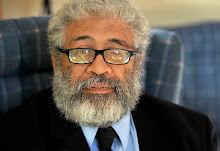Richard Schmidt, a Hero of Humanity
Richard Schmidt is a Hero of Humanity. He is one of the people, like the partisans fighting Fascism in World War II, who is largely anonymous, but who with others has improved the human condition for us all. Richard was born of a Jewish mother in Germany and he was six years old when Hitler came to power.
During our talk at Dunkin Donuts he told how Jews at that time we not considered White people but Semitic people. In Germany there was a racial category called “half Jew”. Since his father was Christian, Richard was a half Jew. To some extent it allowed him to survive the Holocaust.
While growing up under Nazism Richard talked about how the Gestapo came to his neighbor's house. They were socialists and had harbored a resistance fighter who was printing fliers from his rented room. The fascists took the young man, but did not arrest his neighbors. However Richard said that they disappeared later and possibly killed. He said that their son was pressed into the Wehrmacht and was killed.
His family moved to rural Holland where the Nazis did not like to go. Richard suggested the analogy of someone from Boston travelling to Petersham. He was enrolled in a Quaker School and hid from the Nazis, although others he knew did not.
After World War II Richard came to the USA and earned a PhD from the University of Chicago. He said that other Jewish intellectual immigrants taught at traditionally Black colleges in the South. He got a job at Brown University. There he was somewhat of a radical. He talked about the time that Black students came to him for help speaking to the Brown University Administration. The administrator told Richard to get out of the meeting. The Black students interrupted and said that if the administrator wanted to talk to them then the Administrator also had to talk to Richard. Richard had an insight into the colleges’ recruitment of Black students. He said at first the colleges went to the inner city high schools, but the kids there were too militant and unimpressed with academia. At some point the colleges started to recruit from the suburban academies where there were fewer and less rebellious Black kids.
I first met Richard in 1990s when we collaborated on the anti JROTC program in the Worcester high schools. The JROTC program is a clear violation of the UN Protocols on Children Soldiers. He and his wife Lucy and others were the foundation of Worcester PeaceWorks and many anti war and social justice efforts. He is still active today even though he is well into his eighties.
His mind is sharp. Hes still engages in polemics about Marxism and radicalism . He has written several books on the subject and corresponds with several theoreticians in Massachusetts about the issues.
I am happy to be able to call him my friend.
